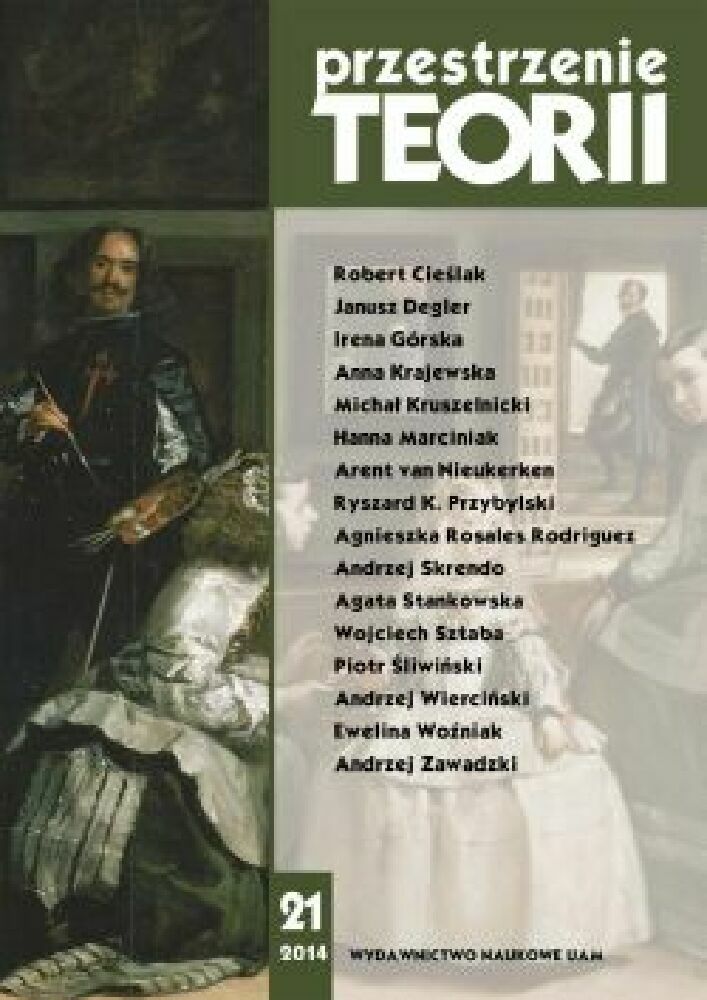Abstrakt
Tadeusz Różewicz moved from Gliwice to Wrocław in 1968. He lived near South Park for many years and he regularly met there with the author of this article. They talked about many different things and current events, and especially about Stanisław Ignacy Witkiewicz, i.e. more specifically about his service in the tsarist army, the battle that took place near the Stokhid in June 1916 in which he was severely wounded as well as about the causes of his suicide in September 1939. In 2003 Różewicz moved to a house on Promień Street, which is located in a remote area of the city. When he was moving to the new place he came across Witkacy’s 1919 treatise titled Nowe formy w malarstwie i wynikające stad nieporozumienia [New Forms in Painting and the Misunderstandings Arising Therefrom], which he had bought in October 1945 at a street stall in Warsaw. After a careful reading of the treatise (as evidenced by numerous underlines in the text), he decided to enroll in the Academy of Fine Arts in Cracow. The quotes that are presented in the article show that Różewicz paid particular attention to Witkacy’s main philosophical concepts (“metaphysical anxiety”) and statements about the end of metaphysics in the 20th century. Many notes and annotations in the margins, some of which are cited in the present article, are evidence of Witkacy’s critical reading of Leon Chwistek’s “Wielość rzeczywistości w sztuce” i inne szkice literackie [The Multiplicity of Realities in Art and Other Literary Sketches]. In 1975 Anna Micińska published, based on a manuscript that had been discovered, the sociocultural study Niemyte dusze [Unwashed Souls] which Witkacy wrote in 1936 but which he did not manage to publish. Różewicz regarded this study as one of Witkacy’s most interesting works because it showed a whole different side of the artist – a citizen who was concerned about the condition of Polish society and the Polish state.Bibliografia
T. Różewicz, Na powierzchni poematu i w środku. Nowy wybór wierszy, Warszawa,1983; przedruk w: tenże, Utwory zebrane. Poezja 3, Wrocław 2006.
T. Różewicz, Spotkania, [w:] Między teatrem a literaturą. Księga ofiarowana Profesorowi Januszowi Deglerowi w 65. rocznicę urodzin, red. A. Juzwenko, J. Miodek, Wrocław
T. Różewicz, Wbrew sobie. Rozmowy z Tadeuszem Różewiczem, oprac. J. Stolarczyk, Wrocław 2011, s. 225.
S.I. Witkiewicz, Marginalia filozoficzne, teksty B. Michalski, P. Polit, Warszawa 2004.
K. Dubiński, Moskiewskie witkacjana, „Sztuka” 1988, nr 5-6.
Stanisław Ignacy Witkiewicz. Człowiek i twórca. Księga pamiątkowa, red. T. Kotarbiński, J.E. Płomieński,Warszawa 1957, s. 281.
S.I. Witkiewicz, Dzieła zebrane, [t. 12:] Narkotyki. Niemyte dusze, oprac. A. Micińska,
Warszawa 1993.
M. Król, Polska w twórczości Stanisława Ignacego Witkiewicza, [w:] Studia o Stanisławie Ignacym Witkiewiczu, red. M. Głowiński, J. Sławiński, Wrocław 1972, s. 307.
M. Szpakowska, Heca z Witkacym, „Dialog” 1985, nr 12, s. 87-97.
T. Różewicz, Kartki wydarte z dziennika (4), „Odra” 1985, nr 10.
Licencja
Autorzy
Autorzy tekstów przyjętych do publikacji w czasopiśmie „Przestrzeniach Teorii” są zobowiązani do wypełnienia, podpisania i odesłania na adres redakcji umowy o udzielenie nieodpłatnej licencji do utworów, z zobowiązaniem do udzielania sublicencji CC.
Zgodnie z umową, autorzy tekstów opublikowanych w czasopiśmie „Przestrzeniach Teorii” udzielają Uniwersytetowi im. Adama Mickiewicza w Poznaniu niewyłącznej i nieodpłatnej licencji oraz zezwalą na użycie sublicencji Creative Commons Attribution-NonCommercial-NoDerivatives 4.0 International (CC BY-NC-ND 4.0).
Autorzy zachowują prawa do dalszego, swobodnego rozporządzania utworem.
Autorzy, którzy wykorzystują w swoim tekście cudze utwory (np. ilustracje, fotografie) proszeni są o dostarczenie do redakcji czasopisma zgodę na publikację od uprawnionych podmiotów.
Użytkownicy
Zainteresowani użytkownicy internetu uprawnieni są do korzystania z utworów opublikowanych po 2015 roku „Przestrzeniach Teorii” tylko w calach niekomercyjnych, pod następującymi warunkami:
- uznanie autorstwa - obowiązek podania wraz z rozpowszechnionym utworem, informacji, o autorstwie, tytule, źródle (odnośniki do oryginalnego utworu, DOI) oraz samej licencji;
- bez tworzenia utworów zależnych - utwór musi być zachowany w oryginalnej postaci, nie można bez zgody twórcy rozpowszechniać np. tłumaczeń, opracowań.
Do wszystkich tekstów opublikowanych przed 2015 r. prawa autorskie są zastrzeżone.
Inne
Uniwersytet im. Adama Mickiewicza w Poznaniu zachowuje prawo do czasopisma jako całości (układ, forma graficzna, tytuł, projekt okładki, logo itp.).
